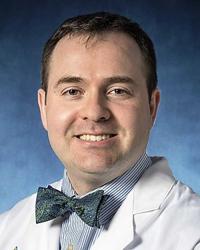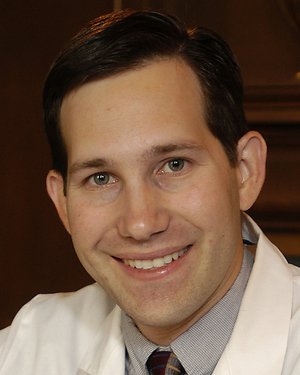Research Lab Results
-
Michael Matunis Lab
Research in the Michael Matunis Lab focuses on the SUMO family of small ubiquitin-related proteins. We study the covalent conjugation of SUMOs to other cellular proteins, which regulates numerous processes needed for cell growth and differentiation, and which, when defective, can lead to conditions such as cancer, neurodegenerative disease and diabetes.
-
Tom Woolf Lab
The Tom Woolf Lab studies the quarter of the genome devoted to membrane proteins. This rapidly growing branch of bioinformatics, which includes computational biophysics, represents the main research direction of our group. We aim to provide insight into critical issues for membrane systems. In pursuit of these goals, we use extensive computer calculations to build an understanding of the relations between microscopic motions and the world of experimental measurements. Our calculations use our own Beowulf computer cluster as well as national supercomputer centers. An especially strong focus has been on the computed motions of proteins and all-atom models of the lipid bilayers that mediate their influence. To compute these motions, we use the molecular dynamics program CHARMM. We hope to use our understanding of the molecular motions for the prediction of membrane protein structures using new computational methods. -
Steven Claypool Lab
Research in the Claypool Lab is focused on defining how lipids and membrane proteins interact to establish and maintain normal mitochondrial function and how derangements in this complex relationship result in pathophysiology. We have demonstrated that yeast lacking tafazzin recapitulates all of the phospholipid abnormalities observed in human patients and many of the mitochondrial defects. Another major project in our lab focuses on the mitochondrial ADP/ATP carrier that is required for oxidative phosphorylation. Researchers are studying how these novel interactions help establish normal mitochondrial function, the biochemical details of these associations, and whether disturbances in these assemblies can contribute to mitochondrial dysfunction. -
JHU NIMH Research Center
The Johns Hopkins NIMH Center is comprised of an interdisciplinary research team who has pooled their talents to study the nature of HIV-associated neurocognitive disorders (HAND). Their aim is to translate discoveries of the pathophysiological mechanisms into novel therapeutics for HAND.Our objectives are to integrate aspects of ongoing research in HAND and SIV encephalitis; to develop high-throughput and screening assays for identifying novel therapeutic compounds; to use proteomics and lipidomics approaches to indentifying surrogate markers of disease activity; to disseminate information and education about HAND through existing and new educational systems, including the JHU AIDS Education Training Center and the JHU Center for Global Clinical Education and to facilitate the entry of new investigators into neuro-AIDS research, and to catalyze new areas of research, particularly where relevant for drug discovery or the development of validated surrogate markers. -
Brain Tumor Laboratory
At the brain tumor laboratory, Henry Brem, M.D. and Betty Tyler, along with more than 350 trainees, have conducted scientific research, contributed to scientific literature, amended clinical practice, and illuminated new pathways for improving clinical outcomes.
The laboratory has advanced the understanding of gene therapy, angiogenesis, intracranial implantation of biodegradable polymers to treat malignant glioma, tumor genetics and proteomics, microchip drug delivery and drug resistance studies. Dr. Brem and his colleagues have designed and led many multi-institutional clinical trials to improve and expand the range of therapeutic options for patients with brain tumors. -
Eugene Shenderov Laboratory
The Shenderov Lab focuses on the elucidation of the mechanisms of immune response and resistance to immunotherapy in Prostate Cancer. This has led to clinical and basic research investigating the presumptive checkpoint inhibitor B7-H3. In pursuit of understanding biomarkers or resistance and response, and regulatory molecules of immune response, we utilize artificial intelligence, immunogenomics, and spatial proteomics and transcriptomics in the laboratory and at the bedside using clinical trial correlative samples. -
Heng Zhu Lab
The Zhu lab is focused on characterizing the activities of large collection of proteins, building signaling networks for better understanding the mechanisms of biological processes, and identifying biomarkers in human diseases and cancers. More specifically, our group is interested in analyzing protein posttranslational modifications, and identifying important components involved in transcription networks and host-pathogen interactions on the proteomics level, and biomarkers in human IBD diseases. -
The Halushka Lab
The Halushka laboratory is interested in the overarching question of expression localization in tissues. To address this, the laboratory has set out upon several avenues of discovery in the areas of microRNA expression, proteomics and tissue gene expression. Many of these queries relate to the cardiovascular field as Dr. Halushka is a cardiovascular pathologist. Come learn about the science being done in the laboratory. -
Elizabeth M. Jaffee, M.D.
Current projects include: The evaluation of mechanisms of immune tolerance to cancer in mouse models of breast and pancreatic cancer. We have characterized the HER-2/neu transgenic mouse model of spontaneous mammary tumors. This model demonstrates immune tolerance to the HER-2/neu gene product. This model is being used to better understand the mechanisms of tolerance to tumor. In addition, this model is being used to develop vaccine strategies that can overcome this tolerance and induce immunity potent enough to prevent and treat naturally developing tumors. More recently, we are using a genetic model of pancreatic cancer developed to understand the early inflammatory changes that promote cancer development. The identification of human tumor antigens recognized by T cells. We are using a novel functional genetic approach developed in our laboratory. Human tumor specific T cells from vaccinated patients are used to identify immune relevant antigens that are chosen based on an initial genomic screen of overexpressed gene products. Several candidate targets have been identified and the prevelence of vaccine induced immunity has been assessed . This rapid screen to identify relevant antigenic targets will allow us to begin to dissect the mechanisms of tumor immunity induction and downregulation at the molecular level in cancer patients. More recently, we are using proteomics to identify proteins involved in pancreatic cancer development. We recently identified Annexin A2 as a molecule involved in metastases. The analysis of antitumor immune responses in patients enrolled on vaccine studies. The focus is on breast and pancreatic cancers. We are atttempting to identify in vitro correlates of in vivo antitumor immunity induced by vaccine strategies developed in the laboratory and currently under study in the clinics.




